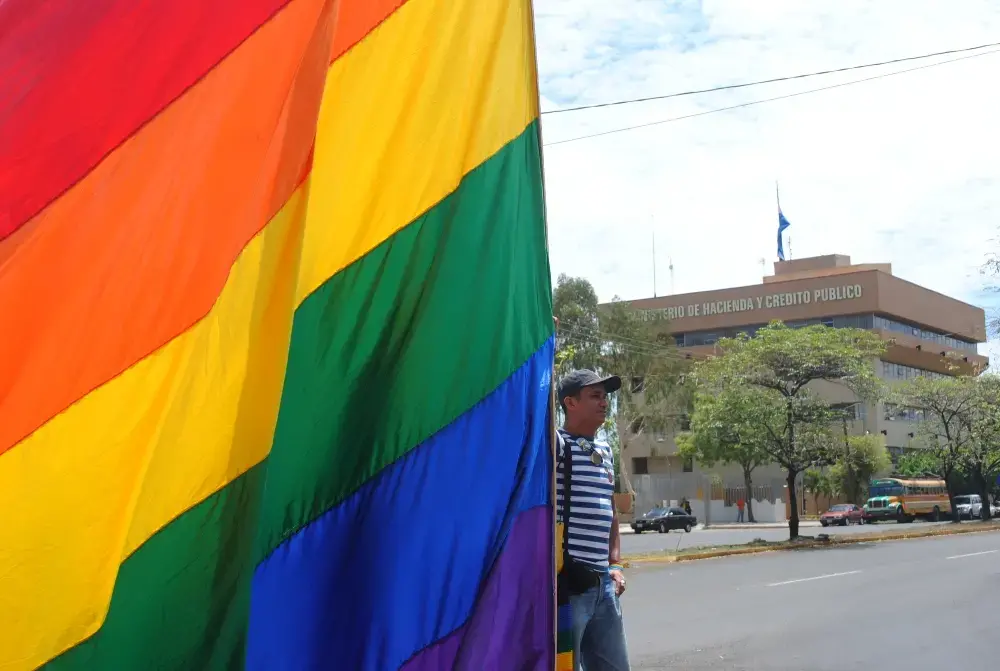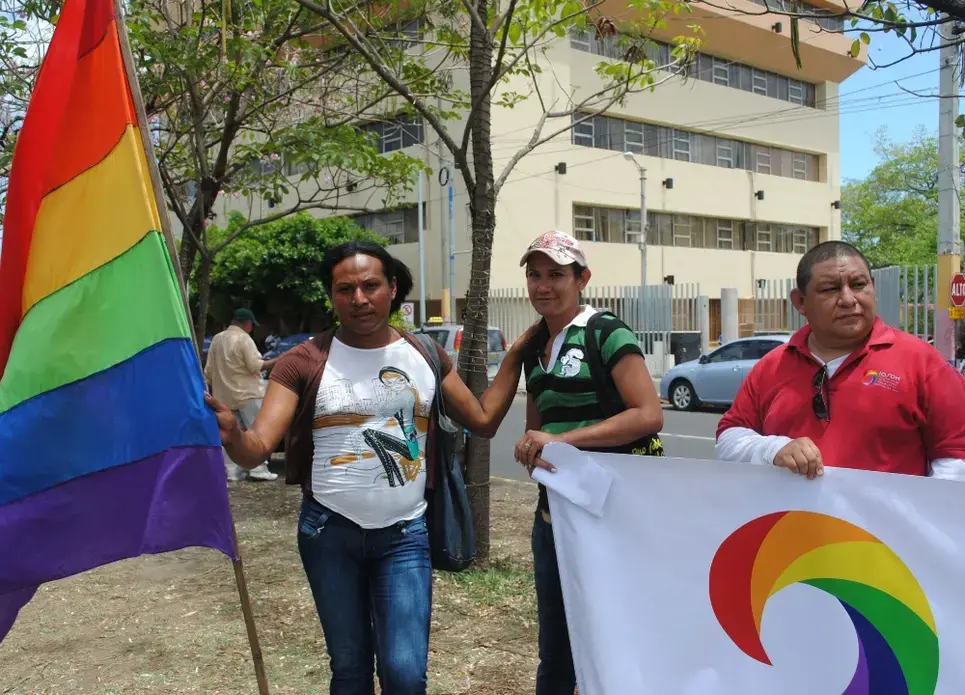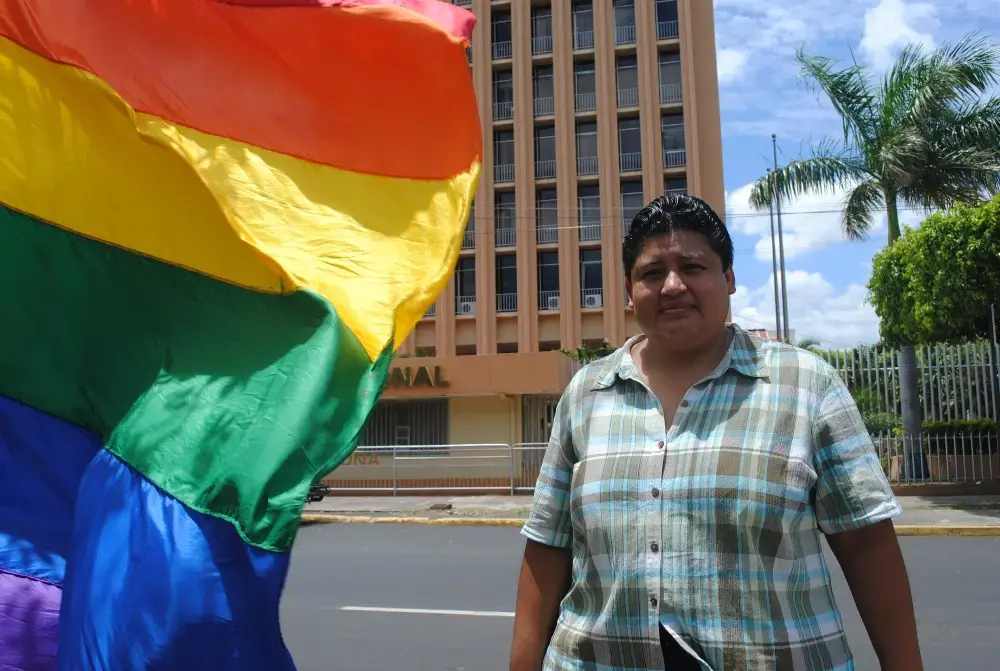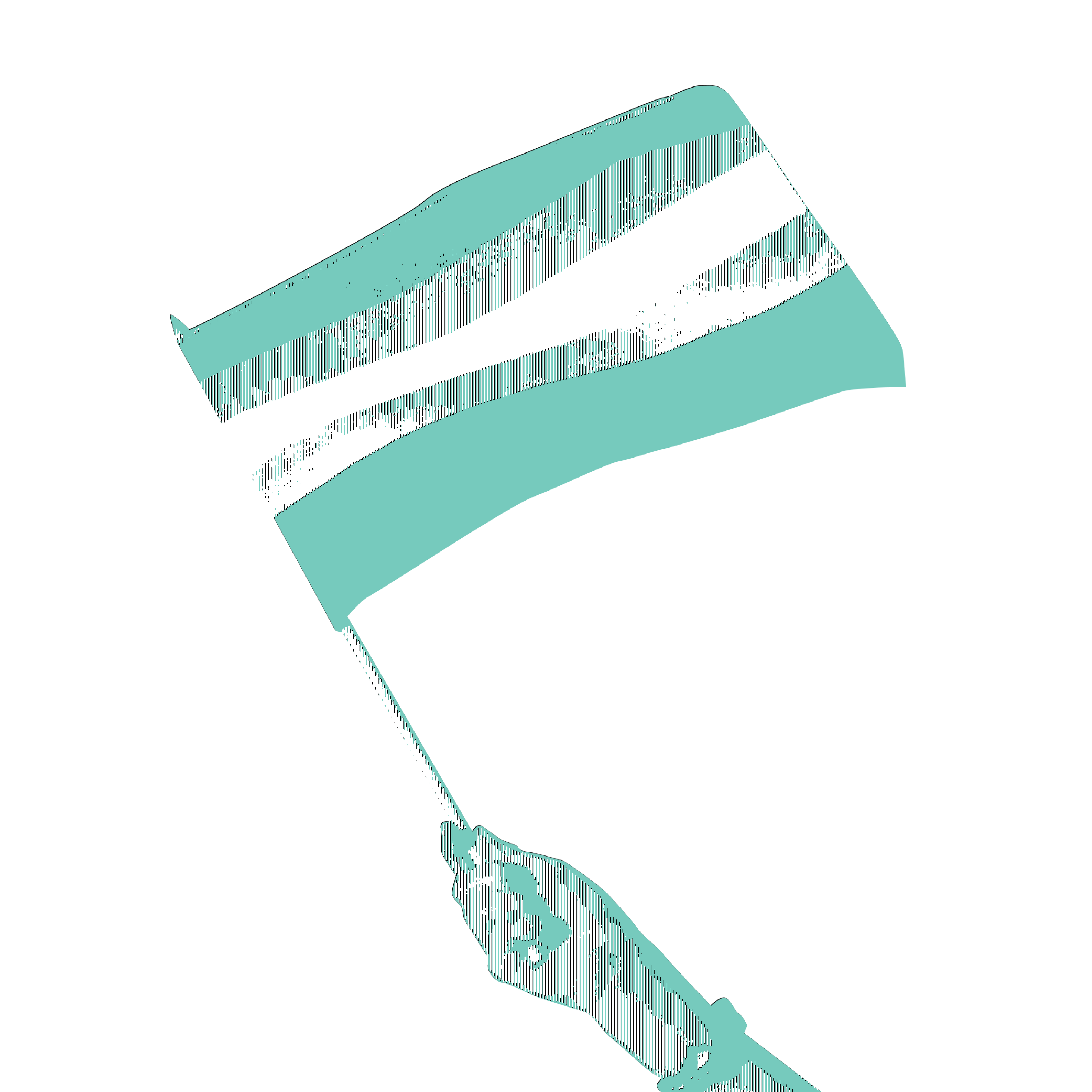Nicaraguan politics has always been a bareknuckle, anything-goes affair. But gay rights activist Marvin Mayorga is about to deliver a political punch that some consider a low blow even by Nicaraguan standards.
In an effort to pressure—or perhaps embarrass—Nicaraguan lawmakers who have excluded homosexuals, bisexuals and transgender individuals from the country's new family code, which defines a family as the legal union between man and woman, Mayorga says he is going to "out" some 20 congressmen whom he claims are "living secret lives" as closet homosexuals. Mayorga, who represents an activist movement known as the Sexual Diversity Initiative for Human Rights, says he will release his list on Thursday morning during a protest in front of the National Assembly, where LGBT activists have been protesting to little effect for the past month.
Officially, none of Nicaragua's 90 lawmakers identify as homosexual, bisexual or transgender. But according to Mayorga, more than 20 percent of legislators—mostly men, he says—are not being entirely forthright about their sexual preferences. He says many of the lawmakers on his list are married with families of their own.
Mayorga, too, is not being entirely forthright when it comes to explaining how he compiled his list. When pressed on the matter, Mayorga refused to explain the methodology of his list-making, limiting his response to oracular comments about how his sources in the gay community have provided information on which lawmakers are "living secret lives behind their mansion gates."
Mayorga says his group's tactics are fair play in a political system where lawmakers have all the power to determine the rights of the LGBT community and refuse to listen to any input from those whose lives they are affecting with their legislation. He says lawmakers are "public figures" who should be subject to full disclosure, not only of their personal finances, but also of their bedroom behavior. But mostly, Mayorga admits, his "outing" campaign is a guerrilla politics tactic to use the power of information—or perhaps the power of defamation—in a human rights struggle that has made no forward motion after a month of respectfully waving rainbow flags in the street outside the National Assembly.
If lawmakers are going to meddle in the family lives of the LGBT community, Mayorga says, then the least they can do is return the favor.
"Some could possibly see this is a form of blackmail, but if we are all equal under the law in Nicaragua, then why are politicians legislating against the gay minority?" Mayorga demands.
In a conservative society where political and religious discourse have become helplessly intertwined, many Nicaraguans do object to the threat of publically sweeping out the
congressional closet. Congressman Eliseo Núñez, head of the opposition Nicaraguan Democratic Bloc (BDN), says the LGBT community is wrong to target a handful of lawmakers for representing the will of Nicaragua society, which he says is "80 percent conservative."
"The gay community has not done enough to permeate the public opinion of society, and that is reflected in the National Assembly," says Núñez, who says he's not gay.
The lawmaker notes that some progress has been made to address the individual liberties of the LGBT community. For example, in 2008, the National Assembly repealed Article 204 criminalizing homosexual relations. Other recent advances under the Sandinista government, which seems to be fighting a constant internal conflict between the revolutionary ideals of its youth and the conservative convictions of its old age, are new public health regulations to protect everyone's access to health services, regardless of sexual orientation, and the creation of a special ombudsman's office for sexual diversity.
But those advances have come more as hesitant concessions than revolutionary strides. And virtually nothing has been done to address old societal prejudices—even in the National Assembly.
"Even if the gay community outs all 90 lawmakers on Thursday, they aren't going to win swing the vote in their favor," Congressman Núñez says. "In fact, they'll probably just polarize society even more."
The LGBT community is already divided on the outing efforts. "I think that forcing lawmakers out of the closet is absurd," says "Maria, who wished to remain unidentified. "I am a lesbian and I want to be able to tell the world that without being blackmailed into doing so. I don't know which lawmakers are gay, but I respect their right to remain in the closet. It took me a long time to come out of the closet and it was painful for me to tell my family."
Forcing people out of the closet, Maria says, is nothing more than a "gay inquisition" that "violates people's dignity" and ultimately "makes us in the gay community the same as those who discriminate against us."
Nicaragua's forthcoming family code, expected to be passed into law this week, defines families as unions between heterosexuals. It excludes all forms of sexually diverse couples and denies homosexuals the right to get married, adopt children or enjoy any other connubial comforts or tax benefits.
Though gay marriage has never been legal in Nicaragua, rights advocates claim the new family code will only institutionalize old prejudices. For a Sandinista government that likes to gush about how it is restoring people's rights and promoting revolutionary change, the family code fails on many counts, activists argue.
"Lawmakers have to represent the population, and the population is all of us," says Samira Montiel, the Sandinistas' special ombudswoman for sexual diversity. Montiel says she is not swayed by the argument that "Nicaraguan society is not ready for this" because it's the role of the government to create a legal framework for social inclusion and equality, even if it means going against the conservative tendencies of society.
For Montiel, respecting the rights of the gay, lesbian and transgender populations is about being consistent with revolutionary principles—ones she hopes the Sandinista Front would live up to.
"In Latin America, the principal advances in the area of respect for sexual diversity have come from governments on the left, so we can't expect anything less from this government," she says.











